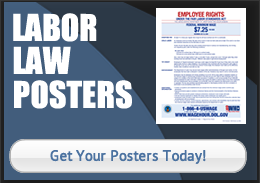Complete Story
10/22/2019
Education Is Key To Happy Employee
Source: Tire Business
I'm not an elected official with opinionated constituents.
The proposal died. Fast forward to 2019. Now, a new group has revisited the idea … all in the name of leveling the economic playing field for minimum-wage workers.
Well, there is more to this equation. And, throwing money at a situation — expecting it to "fix" itself — is not the solution.
My advice? Educate.
Don't just feed the worker, teach him how to "fish."
There is nothing like the feeling of accomplishment, pride when achieving a goal. It's infectious.
Education is key to employment longevity, career satisfaction and better pay. It's a win-win for both mom-and-pop shops and the team member in the company.
Why aren't we talking more about education versus the minimum wage increase? Is it due to the fact it takes more time, effort?
Or, could it be a business mindset glitch? Your guess is as good as mine.
Four years ago, I approached a non-profit and showed them the benefit of entry-level automotive training — showing tire and lube techs opportunities via continuing education.
By the time they graduate from this four-week course, individuals have a better working knowledge of their industry and of their employers' expectations.
Most of all, the main takeaway from this after-work instruction: opportunity, no matter the present, education level.
One participating non-profit group keeps track of their past roll call. Some class members have moved forward in their career at an amazing pace; some have attained management positions. An opportunity out of reach before training; an opportunity to increase their paycheck take-home.
The alternative? Distribute money in hopes for a "quick fix."
If the $15-an-hour issue moves forward, there would be many changes to the mom-and-pop business atmosphere, bottom line, starting with non-skilled, minimum-wage labor positions.
This category's job outlook most likely would decline. Many SME shops could not absorb the increased overhead.
Some of their immediate expenses would be:
- $200/week increase on a 40-hour work week (excluding overtime);
- Increased federal payroll tax (FICA);
- Increased workmen's compensation; and
- Increased liability insurance.
Profit margins of the average, healthy business range between 18% and 30% (depending upon the industry). After the dust settled, the independent business will most likely absorb the $15/hour pay structure, by reducing:
- employee hours worked and/or laying off workers;
- company benefits (Simple IRA/401K, insurance, etc.);
- marketing;
- stock; and
- production and/or product development.
Don't control your overhead? The SME business collapses. Product pricing is based on business operational expense, supply-demand for services. The mom-and-pop shop will be asking: "Is Mrs. Smith willing to pay more for the product, to cover our costs?"
Well … will she?
Education is the multi-faceted, long-term correction. Increase education. Increase self-esteem. Increase paycheck.
Who can put a price tag on that?





